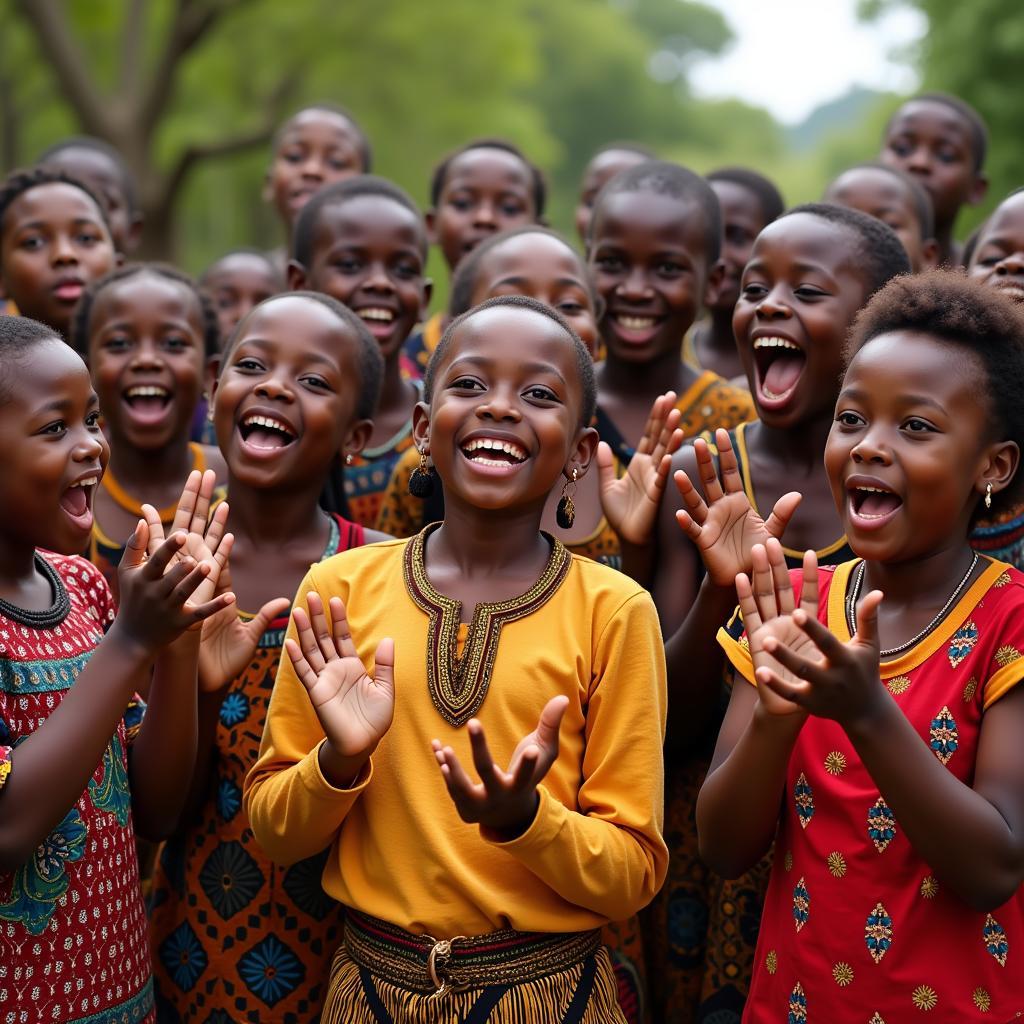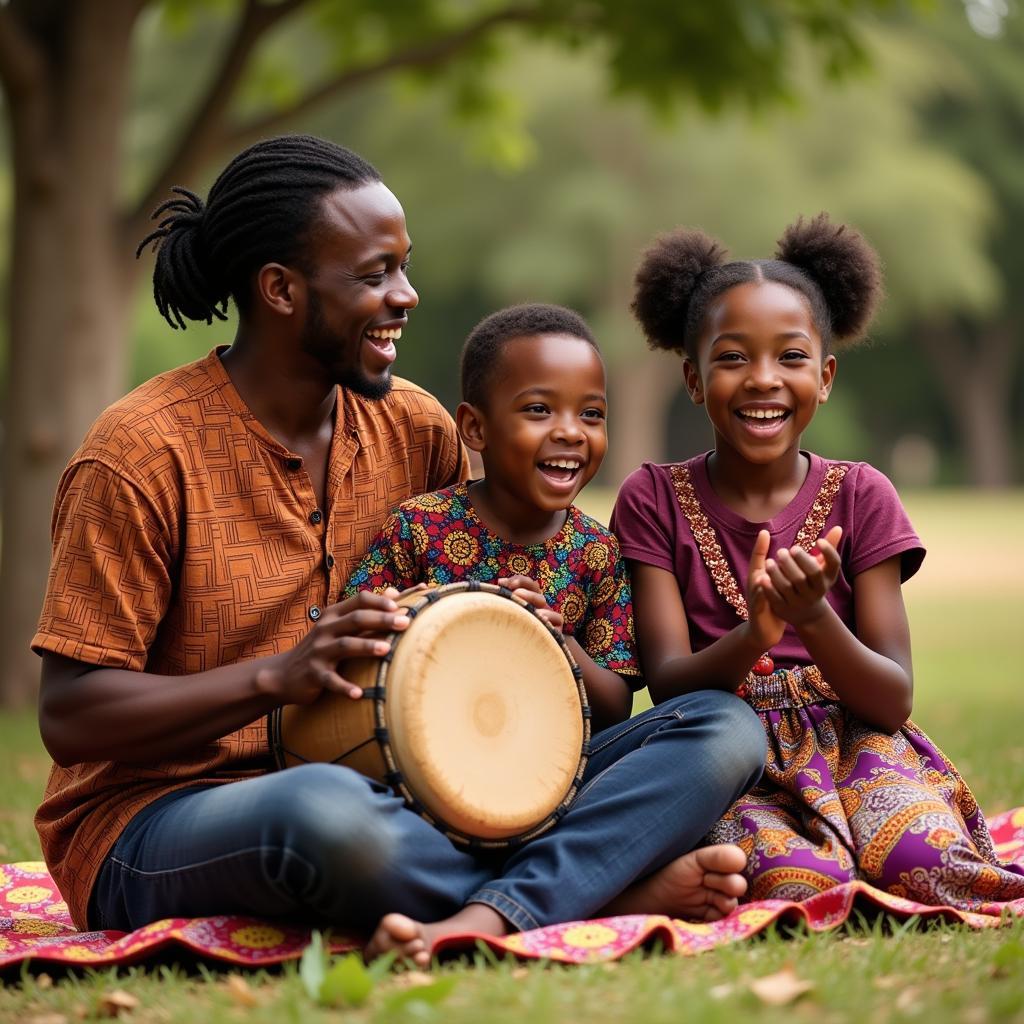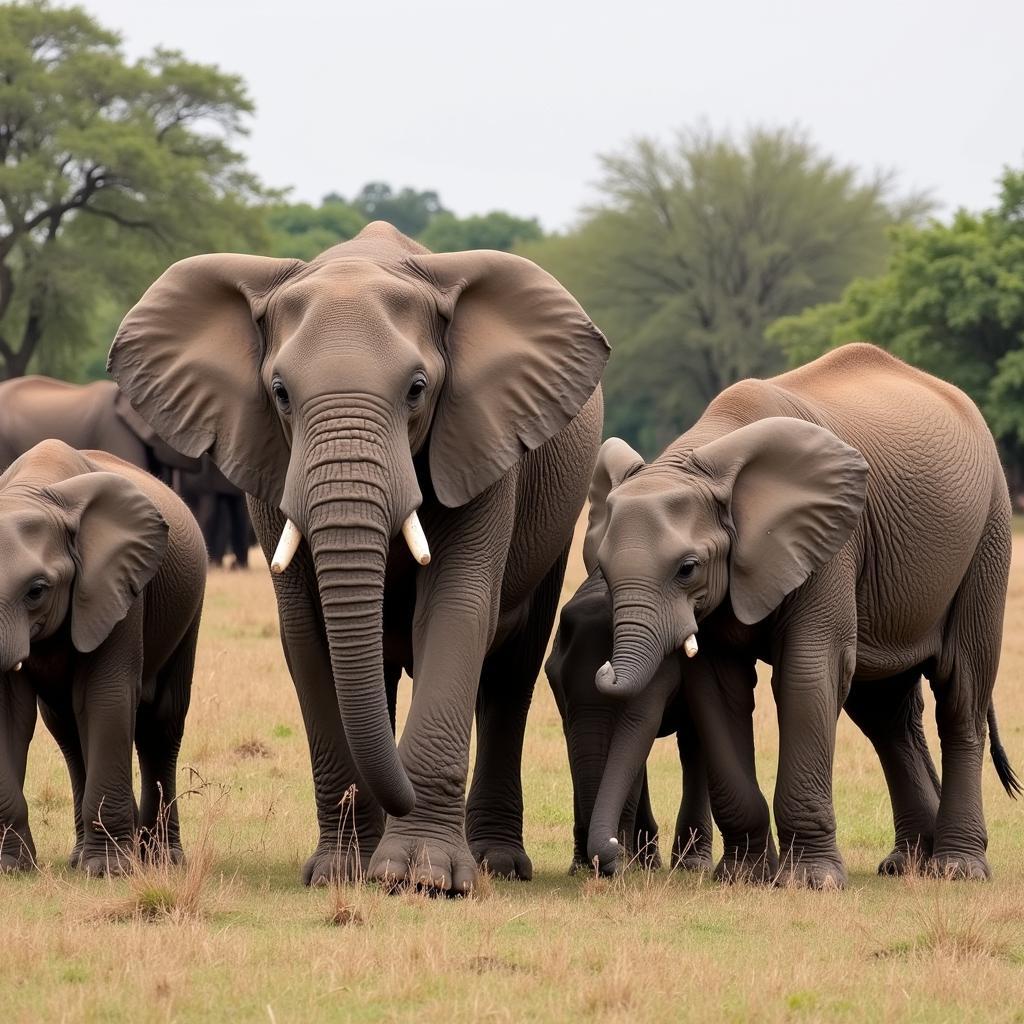African Folk Songs for Children: A Joyful Journey into Culture
African Folk Songs For Children are more than just catchy tunes; they’re a vibrant tapestry of storytelling, life lessons, and cultural heritage woven into beautiful melodies. Passed down through generations, these songs offer a captivating glimpse into the heart of Africa, teaching children about their history, values, and the world around them.
 Children Singing and Clapping in Traditional African Clothing
Children Singing and Clapping in Traditional African Clothing
The Role of Music in African Culture
Music is the lifeblood of Africa. It’s not merely entertainment but an integral part of everyday life, rituals, ceremonies, and storytelling. From celebrating birth to mourning loss, music accompanies every significant event, connecting communities and strengthening social bonds. This deep-rooted significance of music naturally extends to children, who are introduced to their musical heritage from a very young age.
African Folk Songs for Children: A World of Learning
African folk songs for children are incredibly diverse, reflecting the continent’s vast array of cultures and languages. Despite their regional variations, these songs share common themes and purposes:
1. Teaching Life Lessons
Many folk songs impart essential life lessons. They teach children about respect for elders, the importance of sharing, kindness to animals, and the value of hard work. These songs often use animal characters and relatable scenarios to make learning fun and memorable.
Example: In a popular East African folk song, children sing about a little bird who learns a valuable lesson about the consequences of laziness after refusing to help its mother build a nest.
2. Celebrating Nature and Animals
Africa’s rich biodiversity is beautifully reflected in its music. Many folk songs celebrate the beauty of nature, praising the sun, the moon, the rivers, and the animals. These songs often mimic animal sounds and movements, encouraging children to appreciate and connect with the natural world.
Example: A well-known South African lullaby soothes babies to sleep with gentle lyrics describing the moon rising over the savannah, accompanied by the sounds of crickets chirping.
3. Passing Down History and Traditions
African folk songs serve as an oral history, preserving and passing down stories of bravery, love, loss, and cultural heritage. These songs introduce children to their ancestors, their struggles, and their triumphs, fostering a sense of belonging and pride in their cultural identity.
Example: In West Africa, the epic story of Sundiata, the founder of the Mali Empire, is often recounted through captivating songs and music, introducing children to their rich history.
4. Developing Language and Motor Skills
The repetitive nature of many African folk songs makes them ideal for language development in children. The catchy melodies and simple lyrics help children expand their vocabulary, improve pronunciation, and develop language comprehension. Many songs also involve clapping, stomping, and dancing, enhancing motor skills and coordination.
Example: In a popular Ghanaian song, children sing about different body parts, touching their heads, shoulders, knees, and toes, combining singing with movement.
Experiencing the Magic of African Folk Songs
The joy and energy of African folk songs for children transcend cultural boundaries. These songs offer a unique opportunity to introduce children to the beauty and diversity of African culture. Here are a few ways to experience this magic:
- Online Resources: Numerous websites and YouTube channels offer a wide variety of African folk songs for children, often with translations and background information.
- Cultural Events: Attend African cultural events and festivals in your local community to experience the vibrancy of live performances and workshops.
- Children’s Books: Explore children’s books featuring African folk songs and stories, often accompanied by beautiful illustrations.
 Family Enjoying Music Together
Family Enjoying Music Together
Conclusion
African folk songs for children are a testament to the power of music to educate, entertain, and unite. By embracing these songs, we open a window to a rich cultural heritage and share the joy of music that has resonated through generations. Let the melodies of Africa spark your child’s imagination and foster a lifelong love for music and cultural exploration.
